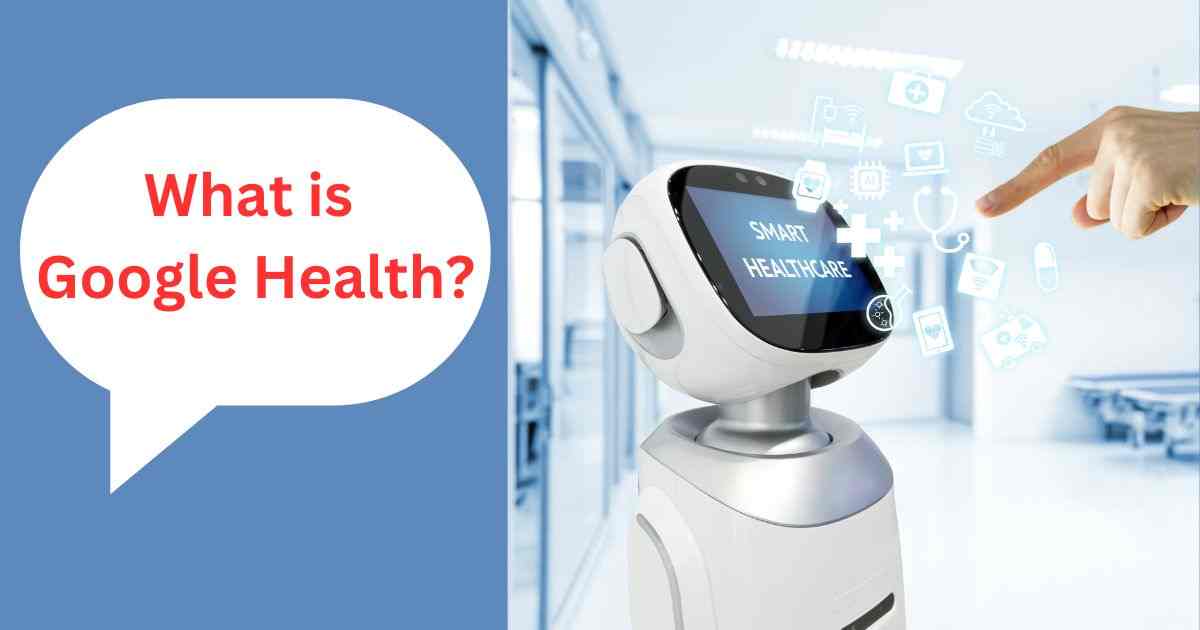In an era marked by technological advancements and digital innovation, the intersection of healthcare and technology is experiencing a significant transformation. Among the pioneering entities leading this revolution stands Google Health. Google Health is a company-wide effort to help people across the world with products and services that leverage data-driven insights and cutting-edge technologies to revolutionize healthcare delivery, research, and patient outcomes. Remember there is no ‘Google Health’ division within Google company today.
What is Google Health?
Google Health aims to harness the power of artificial intelligence (AI), machine learning (ML), and data analytics to address some of the most pressing challenges in healthcare. With a diverse array of projects spanning medical imaging, electronic health records (EHR), disease detection, and health-related search queries, Google Health is redefining how we approach healthcare on a global scale.
Google Health first started in 2008 but discontinued in 2012. Six years later, Google Health restarted in 2018. So Google Health still exists (but not as a division within Google) and continues to release new products.
Key Features of Google Health
One of the key initiatives spearheaded by Google Health is its focus on medical imaging. Through partnerships with healthcare providers and researchers, Google is developing AI algorithms capable of interpreting medical images with a level of accuracy and efficiency unmatched by traditional methods. These algorithms have the potential to revolutionize diagnostic processes, enabling earlier detection of diseases such as cancer and accelerating treatment planning.
Furthermore, Google Health is actively involved in enhancing the accessibility and usability of electronic health records. By leveraging its expertise in data organization and analysis, Google aims to streamline EHR systems, making patient information more easily accessible to healthcare providers while ensuring privacy and security standards are upheld. This initiative has the potential to improve care coordination, reduce administrative burden, and empower patients to take a more active role in managing their health.
In addition to its focus on clinical applications, Google Health is committed to advancing public health efforts through data-driven research and analysis. By analyzing trends in health-related search queries and utilizing anonymized user data, Google can identify outbreaks of infectious diseases, track the spread of illnesses, and provide timely and targeted public health interventions. This capability was particularly evident during the COVID-19 pandemic, where Google Health played a crucial role in disseminating accurate information and resources to the public.
Key Google Health Products and Services
Google Health Studies: Google Health Studies is a platform that enables individuals to participate in health research studies from their mobile devices. Participants can contribute anonymized data on various health-related topics, such as heart health, mental wellness, and COVID-19, to help researchers better understand health trends and develop new interventions.
Google Fit: Google Fit is a health and fitness tracking platform that allows users to monitor their physical activity, nutrition, and sleep patterns. Through the use of wearable devices and smartphone apps, Google Fit provides personalized insights and recommendations to help users achieve their health and wellness goals.
Tips: If anyone is interested in losing weight in a healthy way, please read our 21 day smoothie diet review and Eat-Stop-Eat review.
DermAssist: DermAssist is an app that helps you finds personalized information about your skin concerns and skin conditions. If you wish, you can read our review article about DermAssist App.
Fitbit: The Fitbit app is intended to track the real-time data on your daily activities, heart rate, sleep, and more.
Health Connect: This helps you to share your health data between apps. This will help you to get a holistic view of your health and fitness.
Mammography: An AI system for mammography (mammogram) that helps radiologists to detect breast cancer accurately and quickly.
Ultrasound: Ultrasound are AI models for easier interpretation of important health information from ultrasound images.
Google Search: Google’s search engine is a fundamental tool for individuals seeking health information. Google Health has tailored its search capabilities to provide users with accurate and reliable health information from authoritative sources. Users can find information on symptoms, conditions, treatments, and medications, empowering them to make informed decisions about their health.
Google Health offers many more valuable products like ARDA, Care Studio, Genomics, etc. The above list contains only about half of the products that Google Health offers.
Challenges And Potential
Despite its ambitious goals and promising initiatives, Google Health is not without its challenges. Concerns surrounding data privacy, security, and the ethical use of AI remain at the forefront of discussions surrounding the integration of technology into healthcare. Google Health must navigate these concerns carefully, ensuring that patient data is protected, and algorithms are transparent and unbiased.
Furthermore, the integration of AI and ML into clinical practice requires collaboration and validation from healthcare professionals to ensure that these technologies complement existing workflows and enhance, rather than replace, human expertise. Building trust among patients and healthcare providers is paramount to the success and widespread adoption of Google Health’s innovations.
As Google Health continues to evolve and expand its reach within the healthcare landscape, its impact on the future healthcare is undeniable. By harnessing the power of data and technology, Google Health has the potential to drive significant advancements in disease prevention, diagnosis, and treatment, ultimately leading to improved patient outcomes and a more efficient healthcare system.
Final Thoughts
Google Health represents a promising beacon of innovation in the realm of healthcare. By leveraging its expertise in technology and data analytics, Google is poised to revolutionize the way we approach healthcare delivery, research, and public health efforts. However, to fully realize its potential, Google Health must navigate challenges surrounding data privacy, security, and stakeholder collaboration with care and diligence. Nonetheless, the future of AI-driven healthcare looks brighter with Google Health at the forefront of innovation.

